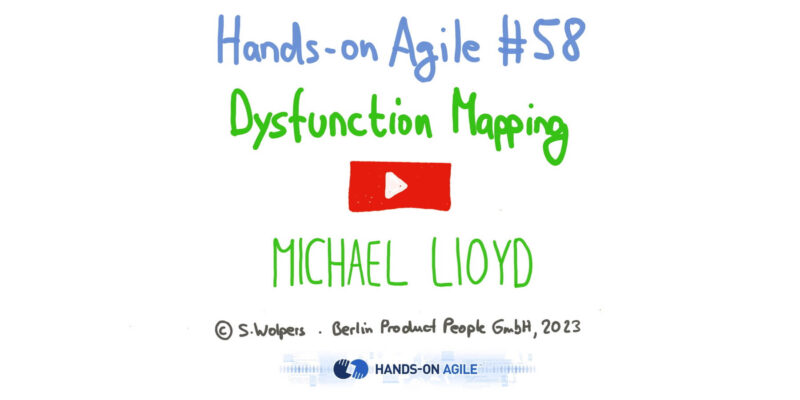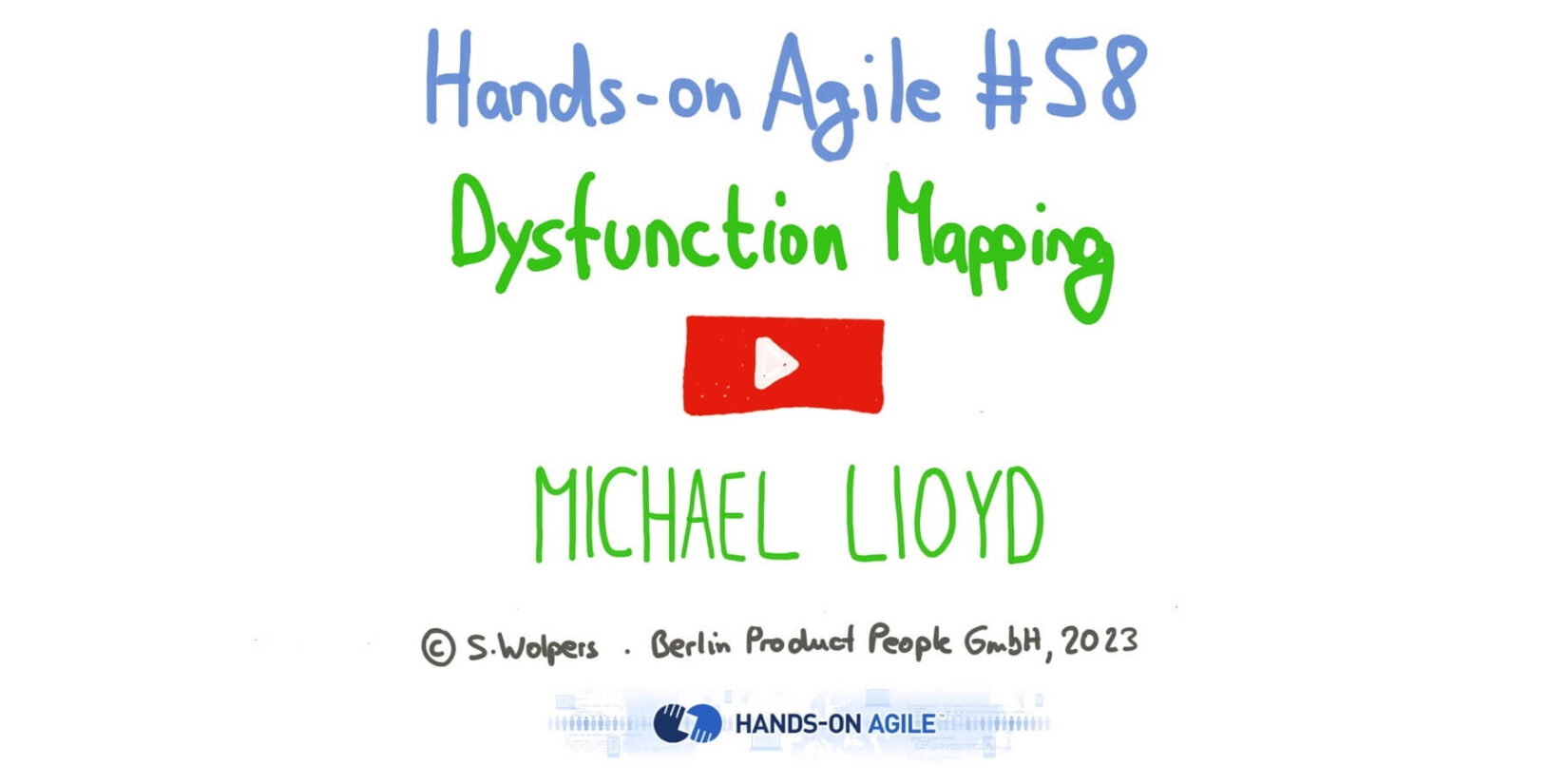TL; DR: Dysfunction Mapping w/ Michael Lloyd
In this fascinating talk, Michael introduced the concept of dysfunction mapping, a tool developed over years of trial and error aimed at creating a repeatable way to find, theme, and ultimately solve organizational dysfunction.
📺 Watch the video now: Dysfunction Mapping — Michael Lloyd at the 58. Hands-on Agile Meetup.
📖 Your single best investment to improve your professional standing; order the Scrum Anti-Patterns Guide book now!
The most popular discussion on LinkedIn last week was: Looking to Get Hired as a #ScrumMaster or #AgileCoach?
🗞 Shall I notify you about articles like this one? Awesome! You can sign up here for the ‘Food for Agile Thought’ newsletter and join 42,000-plus subscribers.
🎓 Join Stefan in one of his upcoming Professional Scrum training classes!
Abstract
Dysfunction Mapping is a tool developed over years of trial and error, aimed at creating a repeatable way to find, theme, and ultimately, solve organizational dysfunction. By following these steps, you can more quickly identify the biggest wins, develop a solid action plan, and measure if you’re really achieving outcomes that matter. It’s not a silver bullet, but it can give you some structure to creatively solve problems while also making your value visible and your goals clear.
During the Q&A part on humble planning, Maarten answered the following questions, among others:
- What about other common iterative change management strategies? Which have you tried & why have they failed for you? Why do you think they failed in your experience?
- Curious why the mapping moves from Right to Left (+2)
- A system diagram of influencing factors often contains reinforcing loops – how do we make that work with dysfunction trees that do not allow for loops?
- Do you worry when you have identified a “dysfunction” that you could go deeper into and perhaps get more possibilities? I am thinking of “The Dangers of the 5 Whys” and the advantages of systems thinking instead of reductionist cause-effect models.
- This seems focused on practices/processes. What is your approach to the foundational issues of mindset, values, behavior & culture?
- Are the symptom cards available on the Honest Agile website?
- How do you define a purpose statement for dysfunctions? How do we get the team’s buy-in for these statements?
- How do you prioritize what to pick up first/next?
- I am curious about the clustering of symptoms and finding the real causes. Is it a typical root cause analysis?
- Do you identify impacts or the symptoms/dysfunctions or do anything else to understand how to prioritize which to address? Understanding the impact seems to be a missing piece.
- Are you sharing all your written-down symptoms with the team? “This all is what you are doing wrong”…
- The mindset-values-principles-practices slide could be interpreted as there is only one mindset.
- Do you think the Scrum anti-patterns Stefan identified could automatically fill your diagram?
- How do we order the implementation of the solutions?
- Is it, in your opinion, reasonable to include the DM in the OKRs?
- Symptom metrics are mostly output metrics? Could we also measure against the root cause?
- How do you create a single Sprint/cycle goal when doing Kanban with, e.g., 4 product goals?
Watch the recording of Michael Lloyd’s dysfunction mapping session now:
Meet Michael Lloyd
Michael serves as a distinguished Agile Coach, Scrum Master, and authentic leader, boasting eight years of expertise in enhancing team and organizational performance to increase value delivery frequency. As the Head of Global Agility at Honest Agile, his mission is to influence agile practices globally by assisting agile practitioners in addressing actual challenges.
Connect with Michael Lloyd
Dysfunction Mapping Templates on Miro
📖 Dysfunction Mapping — Related Content
Download the Scrum Anti-Patterns Guide for free
📺 Watch the video now: Dysfunction Mapping — Michael Lloyd at the 58. Hands-on Agile Meetup.
📅 Scrum Training Classes, Workshops, and Events
Learn more about Product Backlog anti-patterns with our Scrum training classes, workshops, and events. You can secure your seat directly by following the corresponding link in the table below:
See all upcoming classes here.
You can book your seat for the training directly by following the corresponding links to the ticket shop. If the procurement process of your organization requires a different purchasing process, please contact Berlin Product People GmbH directly.
✋ Do Not Miss Out and Learn more about Dysfunction Mapping — Join the 19,000-plus Strong ‘Hands-on Agile’ Slack Community
I invite you to join the “Hands-on Agile” Slack Community and enjoy the benefits of a fast-growing, vibrant community of agile practitioners from around the world.
If you like to join all you have to do now is provide your credentials via this Google form, and I will sign you up. By the way, it’s free.
Support your team’s efforts with dysfunction mapping by pointing to the free Scrum Anti-Patterns Guide:





